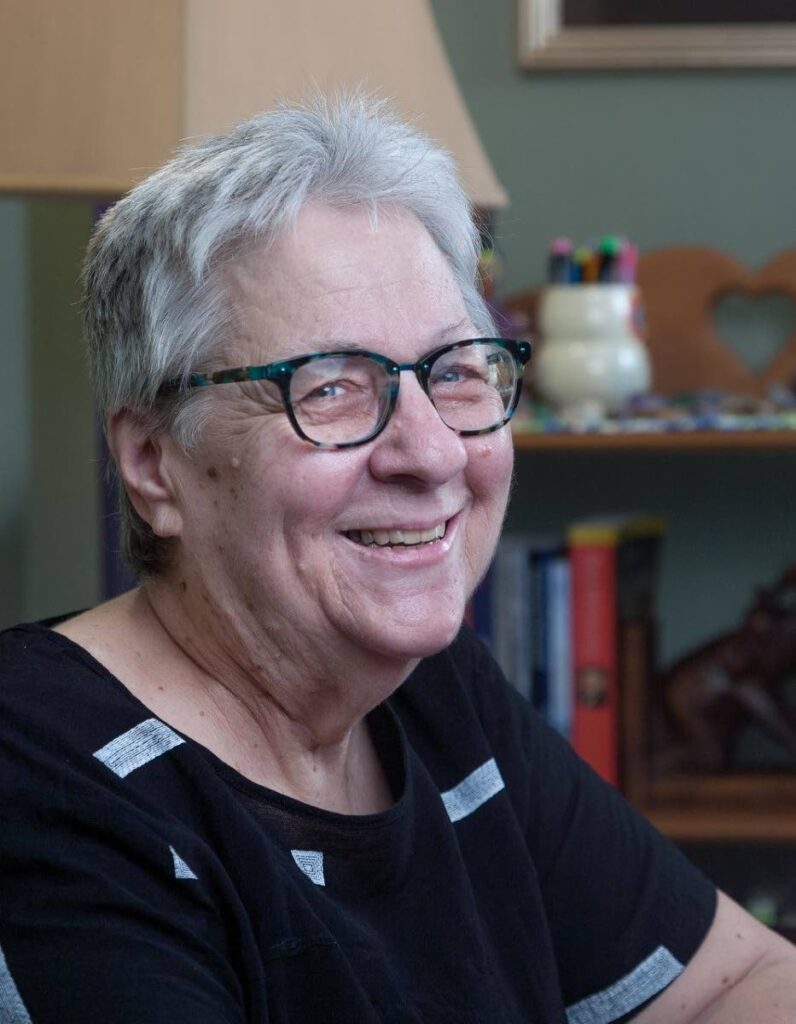Our most important holiday

DEBBIE JACOB
ON THURSDAY (March30), we celebrate one of our most important holidays, Spiritual Baptist Liberation Day. This marks the long, noble journey of the Spiritual Baptists from having their religion outlawed by the British under the Shouter Prohibition Ordinance of 1917 to the repeal of that law on March 30, 1951.
In their tumultuous history, the Baptists risked arrest, ridicule and persecution while refusing to accept prejudice in the guise of that unfair law passed under British rule. This holiday is special because it recognises and celebrates freedom of worship for all of us.
The Baptists have left an indelible mark on Trinidad and Tobago’s culture – particularly our music. They inspired anthropologists, calypsonians and writers with their courage and perseverance. From the 1930s, many calypsonians including Growling Tiger, Attila, Caresser and Roaring Lion recorded Baptist hymns in New York. Those singers often ridiculed the Baptists in their calypsoes – even as they profited off of recording Baptist-influenced music.
The Spiritual Baptists gained international recognition when, in 1949, American anthropologists Melville and Frances Herskovits studied the Baptists in Toco. The Herskovits recorded their hymns, making the Spiritual Baptists the first ethnological study in the English-speaking Caribbean.
The tide turned for this persecuted religion after independence. Gradually, the Baptists became an enduring symbol of colonial resistance. Finally, their defiance under the British got recognised as an act of courage that benefitted all of us.
Calypsonians like Calypso Rose helped turn the tide of public sentiment in favour of the Baptists. A growing number of calypsonians realised that Baptist rhythms and chants infused calypso with an uplifting sense of spirituality. It made calypso more danceable.
In 1980, SuperBlue (then Blue Boy) had an entire country singing and dancing in the streets to Soca Baptist. The Baptists complained that Blue Boy’s soca was sacrilegious and asked for it to be banned. It won the Road March in 1980. Most importantly, it elevated the Baptists to a lofty place in popular culture.
A wave of music with Baptist rhythms brought a sense of hope and unity to this country. Andre Tanker's River Come Down made powerful statements using Baptist rhythms. In 1986, David Rudder's Bahia Gyul broke down the barriers between traditional calypsonians performing in calypso tents and lead singers from brass bands confined to fetes. Aided by his Bahia Gyul with her Baptist rhythms, Rudder, the lead singer for Charlie's Roots, won every calypso competition in 1984.
It was Mother Muriel ringing her bell on the mourning ground that brought the country together in Get Something and Wave, Super Blue’s 1991 Road March that followed Yasin Abu Bakr’s 1990 coup attempt. In many ways that Baptist influence helped to heal the nation in one of its lowest moments.
By now, we all should appreciate the Baptists’ role in independence. Earl Lovelace’s novel The Wine of Astonishment is a vivid reminder of the sacrifices the Baptists made to preserve their religion.
The Spiritual/Shouter Baptists have a special place in Caribbean history. They remind us to recognise and appreciate our heroes and stand up for our values. The Spiritual Baptists suffered under colonialism and they suffered from the ignorance that prevailed in this country when they were ridiculed in calypsoes, and yet the Baptists refused to be victims.
No, this is not just a day for Spiritual/Shouter Baptists to celebrate their religion and the repeal of the Shouter Baptist Ordinance. It is a day for Hindus, Muslims and all Christians to give thanks for those who fought for our independence and those who believe we have the right to choose our own spiritual path in this life. This is a right we should cherish and never take for granted.
Be grateful for a country that recognises all religions. There is no doubt in my mind that this is the most important holiday we celebrate in Trinidad and Tobago.


Comments
"Our most important holiday"